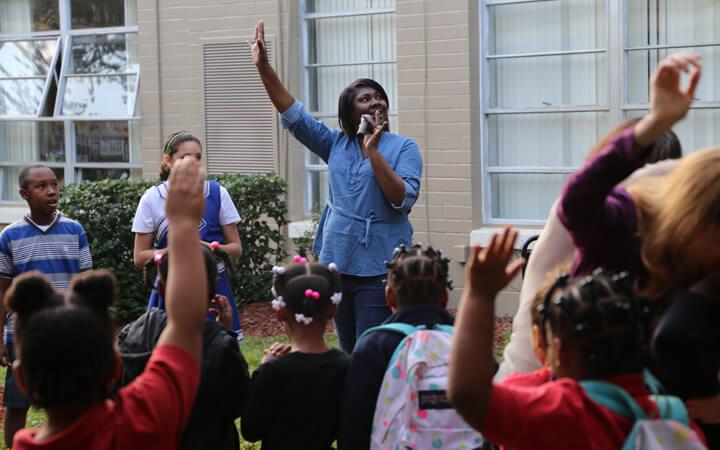"We accomplish in our lifetime only a tiny fraction of the magnificent enterprise that is God's work. Nothing we do is complete, which is a way of saying that the Kingdom always lies beyond us." - Blessed Archbishop Oscar Romero
School leaders function within dynamic and complex systems. No one day is the same as the next and there are always a number of plates spinning. To some this work may seem complicated and messy, but for those of us drawn to the vocation, we relish knowing that each day brings something new. How we manage the multiple and often competing demands of our work is one determinant of how successful our school will be. Principals of high-performing schools focus their attention on key areas when managing complexity. According to Chenoweth & Theokas, authors of Getting it Done: Leading Academic Success, there are three key leverage points to focus on:
-
Scheduling is about the strategic use of time.
Have you ever conducted an audit of your time? How often are you in the classrooms conducting walkthroughs? Coaching teachers? Analyzing assessment data with faculty? It is easy to get distracted by administrative paperwork or to feel pressured to respond to emails and return phone calls. Yet we know the greatest lever for increasing student achievement is for the leader to focus time on core activities key to improving instruction. Examine your schedule to see if your time is strategically being used to move instruction forward, and if not, what can you let go of or re-prioritize such that you return the instructional core to your center.
-
Discipline is about educating students to be good citizens and creating a climate and culture conducive to teaching and learning.
Members of the Remick Leadership Program recently completed an assignment where they had to shift an operating norm in their school setting. A number of leaders chose to shift operating norms that were challenging the climate and culture of the school and causing more discipline and disorder issues. As shifting norms ranged from re-establishing the uniform policy to synchronizing class transition times, all leaders were challenged to bring the rationale for shifting these norms back to their root beliefs and share this with faculty. In doing so, buy-in on shifting these norms increased and the rationale for making adjustments mid-year was clearly articulated. Educating students to be "saintly" citizens requires that we develop systems that create a climate and culture conducive to allowing our students to succeed and thrive. These climates allow us to focus our time and energy on the important work of teaching and learning. So, tuck in those shirts and synchronize those clocks, and pay close attention to how you lead others to build this strong climate and culture.
-
Decision making is about building leadership throughout the building.
As leaders it's important to remember we do not go about the work alone. If what we are constructing is to be sustained beyond our time, we must build a team around us that believes in a collective vision. Engaging others in meaningful conversation, listening carefully, and building in others a sense of ownership are all necessary as you work towards this shared vision. And every now and then, pause, take a step back and give thanks to the team around you. While the end of the school year is a great time to reflect back on all that your team has accomplished, try to make it a habit to pause, take a step back and realize that we are workers, not master builders; ministers, not messiahs. All we do is simply a step in the larger journey, and those journeys are much more fun when you have companions to accompany you along the way
Do you have a strategy to add to this story? Let us know in the comments below!
 Alliance for Catholic Education
Alliance for Catholic Education
